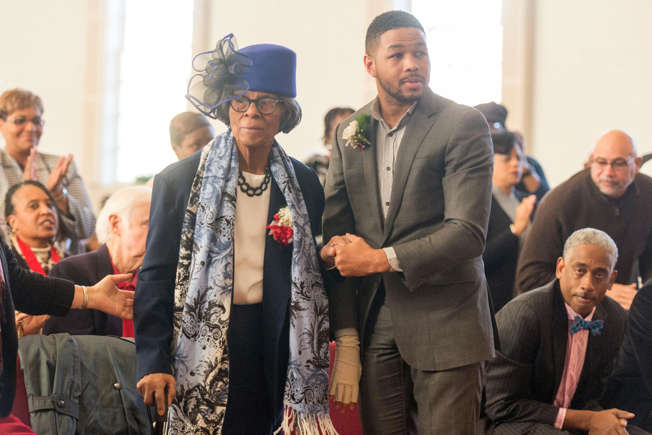Story by Angela Dennis, Knoxville News Sentinel
Knoxville, Tenn)-Ether Rice Jackson, a dedicated archivist at Knoxville’s Beck Cultural Exchange Center and revered community member, died this week at the age of 103.
Jackson’s significant contributions at the Beck Center involved the meticulous curation and archiving of obituaries for every African American in Knoxville. Beyond serving as a rich source of genealogical information for Black Knoxvillians, the records stand as a powerful testament to the history she shared with the community. Safeguarded in the Beck archives, they serve as a tribute to the countless individuals who left a lasting mark on Knoxville.
“Ms. Jackson’s selfless commitment to preserving these legacies is a debt acknowledged with gratitude, as her tireless efforts continue to weave an invaluable narrative within the fabric of Beck Cultural Exchange Center,” said Renee Kesler, Beck Center’s executive director.
Jackson was born in South Carolina on Dec. 24, 1920, Kesler said, and moved to Knoxville at 9 months old. A graduate of Austin High School in 1941 and devout woman of faith, she served as a deaconess at the House of God Church in Knoxville, playing the piano until her final days. She outlived her husband and only son.
Kesler said Jackson’s entire life revolved around community, faith and the belief that education is the key to success. She loved kids and took every opportunity to teach the value of hard work. The two formed an inseparable bond.
“She was my best friend. Ms. Jackson came from a generation of people who understood what it meant to give back to community, almost as if the community had given to her,” Kesler said.
Growing up in the days when race relations weighed heavy, Jackson’s spirit was marked by a belief that dedication over anger would serve as the way to get through those tough times, never allowing frustrations to hold her back from the work to which she devoted her life.
“She was never angry. She lived through Jim Crow and segregation. And when you think about everything she witnessed and went through, she didn’t have a bitter bone in her body. Even as she told the stories of things that happened to her she didn’t have any grudges with anyone,” Kesler said.
Jackson had no special secrets about living such a long life. She would say it was nothing but God.
Whether it was watching her make her bed so tight you could bounce a quarter off it, cooking with the heavy cast iron pans passed down from her mother, or seeing her zoom out of the Beck Center parking lot, those who loved her said she leaves behind memories that they will hold dear.
Jackson drove herself to the Beck Center every other week faithfully until she was well over 100 years old.
“She would always ask me, ‘Why does everybody want to ask me my age or talk about my age? I don’t ask them theirs,” Kesler laughed.
“She didn’t even realize what a big deal it was to be doing all that she does and to live that long. Or how remarkable that was that she was still driving. As she got older, I told her that we probably needed to train someone else to learn how to do the obituaries and I’ll never forget she looked at me and asked me why. I said what a dumb question, you’re right, and I never asked her again,” Kesler said.
Jackson never asked for anything, Kesler said, and wouldn’t let others give to her, either. Throughout her life, she wrote checks to as many people and organizations as she could up until she died. She paid her tithes every week, and rarely spent a dime on herself.
“She called it her overflow. And all that overflow she made sure she used to help others,” Kesler said.
Former Knoxville NAACP president and Civil Rights leader Dewey Roberts Sr. told Knox News that working alongside her as a volunteer after retirement was something they both had in common.
“She was someone who was just committed to everything she did. We are going to miss her around here,” he said.
Jackson’s legacy is now a part of history at the Beck Cultural Exchange Center. Her work was part of the mission when the Beck Center opened its doors in 1975.
“Knoxville lost a giant who dedicated her life to this city until her last day,” Kesler said.
“She understood what it meant to build something for the next generation, to preserve the legacies of African-Americans, and to tell our stories. Every obituary she was archiving meant something to her and now she has passed that on to us.”
Angela Dennis is the Knox News race, justice and equity reporter. Email angela.dennis@knoxnews.com. X formerly called Twitter @AngeladWrites. Instagram @angeladenniswrites. Facebook at Angela Dennis Journalist.
This article originally appeared on Knoxville News Sentinel: Knoxville archivist Ether Rice Jackson, who documented the lives of African Americans, dies at 103

